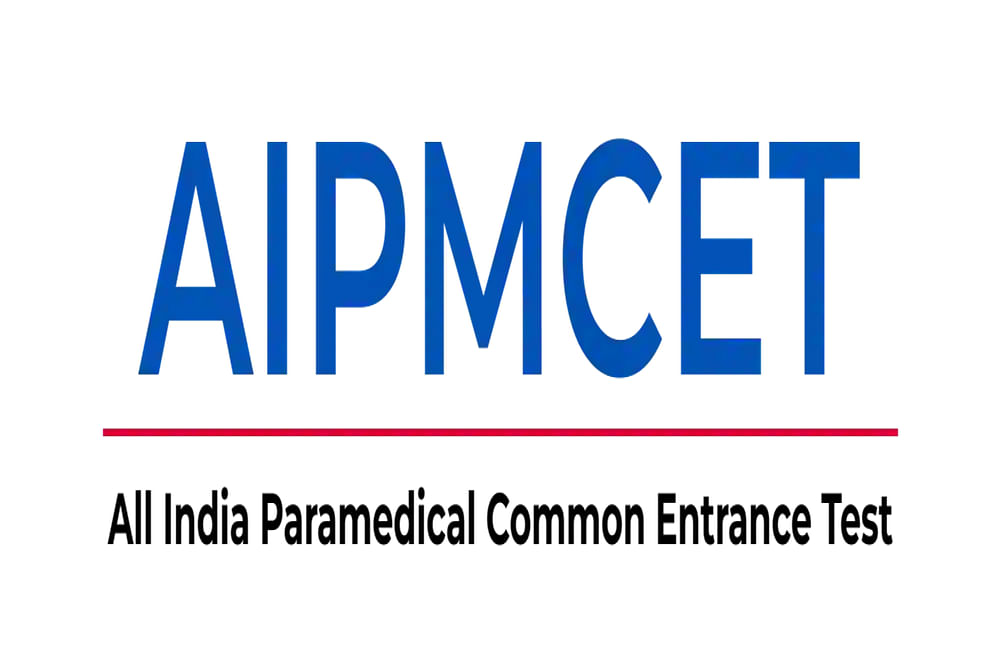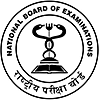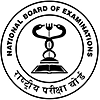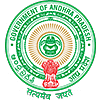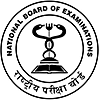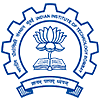
NEET Biology Syllabus 2024 contain vital topics such as Cell Structure and Function, Plant Physiology, Reproduction, Biotechnology and Its Applications and more. The question paper for NEET will be divided into 3 sections which include Biology, Chemistry, and Physics. There would be 180 multiple-choice questions with ninety questions from the biology section and forty-five questions from both chemistry and physics.
Table of Contents
- NEET Biology Syllabus 2024
- NCERT 11th Biology Syllabus for NEET 2024
- NCERT 12th Biology Syllabus for NEET 2024 Exam
- NEET Biology Reference Books
- NEET Biology Syllabus Weightage
- Tips for NEET 2024 Biology Preparation
NEET Biology Syllabus 2024
The NEET Biology Syllabus is taken from the NCERT 11th and 12th-grade curriculum. To get a good rank in NEET, the candidates are advised to start Biology as it contains the most number of questions over the other two sections. The syllabus contains both Botany and Zoology.
The NEET Biology Syllabus can be divided into 2 sections which are
- NCERT 11th class
- NCERT 12th class
NCERT 11th Biology Syllabus for NEET 2024
The syllabus covered in NCERT for NEET biology is quite broad. The NEET Biology Syllabus is divided into topics and sub-topics. For a better understanding, we have provided the NEET biology syllabus according to the topics and sub-topics.
Unit 1 - Diversity in Living World
The important topics covered under this section includes:
- Biodiversity
- Taxonomy and Systematics
- Concept of Species and Taxonomy Hierarchy
- Binomial nomenclature
- Five kingdom classification; Important features of Monera; Protista and Fungi and its’ classification into major groups
- Lichens, Viruses, and Viroids.
- Need for classification
- Three domains of life; Taxonomy & Systematics
- Tools for study of Taxonomy; Museums, Zoos, Herbaria, Botanical gardens.
- Important features & Classification of animals; Non-chordate up to phyla level and chordate up to classes level with features and examples
- Important features & Classification of plants into major groups-Algae, Bryophytes, Pteridophytes, Gymnosperms, and Angiosperms with features and examples
Unit 2 - Structural Orgainisation in Plants and Animals
Unit 2 of Structural Organisation comprises of the following topics:
- Morphology & Modifications; Anatomy and features of the various parts of flowering plants: flower, fruit, root, stem, leaf, cymose and racemose inflorescence, and seed.
- Animal tissues; Morphology, anatomy, and functions of digestive, circulatory, respiratory, nervous, and reproductive systems of an insect (cockroach).
Unit 3 - Cell Structure and Function
The topics covered under Unit 3 is given below:
- B Cell division: Cell cycle, mitosis, meiosis, and their importance.
- Cell theory and cell as the basic unit of life
- Cell envelop, cell membrane, cell wall
- Cell organelles-structure and functions
- Chemical constituents of living cells: Biomolecules-structure and function of proteins, carbohydrates, lipids, nucleic acids
- Cytoskeleton, cilia, flagella, centrioles (ultrastructure and function)
- Endomembrane system-endoplasmic reticulum, Golgi bodies, lysosomes, vacuoles
- Enzymes-types, properties, enzyme action.
- Mitochondria, ribosomes, plastids, microbodies
- Nucleus-nuclear membrane, chromatin, nucleolus
- Nucleus-nuclear membrane, chromatin, nucleolus.
- Structure of prokaryotic and eukaryotic cell
Unit 4 - Plant Physiology
The topics under plant physiology is outlined below:
- Transport in plants
- Movement of water, gases, and nutrients:
- Cell to cell transport-Diffusion, facilitated diffusion, active transport
- Deficiency symptoms and toxicity of minerals
- Diffusion of gases
- Elementary idea of Hydroponics as a method to study mineral nutrition
- Long-distance transport of water— Absorption, apoplast, symplast, transpiration pull, root pressure, and guttation
- Mineral nutrition
- Essential minerals, macro and micronutrients and their role
- Nitrogen metabolism-Nitrogen cycle, biological nitrogen fixation.
- Plant — water relations — imbibition, water potential, osmosis, plasmolysis
- Transpiration-Opening and closing of stomata
- Uptake and translocation of mineral nutrients-Transport of food, phloem transport, Mass flow hypothesis
- Photosynthesis
- Photosynthesis as a means of Autotrophic nutrition
- Chemiosmotic hypothesis
- Cyclic and non-cyclic and photophosphorylation
- Factors affecting photosynthesis.
- Photochemical and biosynthetic phases of photosynthesis
- Photorespiration C3 and C4 pathways
- Site of photosynthesis
- Pigments involved in Photosynthesis
- Respiration
- Amphibolic pathways
- Cellular respiration-glycolysis, anaerobic fermentation, TCA cycle, and electron transport system (aerobic)
- Energy relations-Number of ATP molecules generated
- Exchange gases
- Respiratory quotient
- Plant growth and development
- Conditions of growth
- Differentiation, dedifferentiation, and Redifferentiation
- Growth
- Phases of Plant growth and plant growth rate
- Photoperiodism
- Regulators-auxin, gibberellin, cytokinin, ethylene, ABA
- Seed germination
- Seed dormancy
- The sequence of developmental process in a plant cell
- Vernalisation
Unit 5 - Human Physiology
Human physiology syllabus under NEET can be delineated as follows:
- Digestion and absorption
- Alimentary canal and digestive glands
- The caloric value of proteins, carbohydrates, and fats
- Egestion; Nutritional and digestive disorders — PEM, indigestion, constipation, vomiting, jaundice, diarrhea.
- Peristalsis, digestion, absorption, and assimilation of proteins, carbohydrates, and fats
- Role of digestive enzymes and gastrointestinal hormones
- Breathing and Respiration
- Disorders related to respiration-Asthma, Emphysema, Occupational respiratory disorders.
- Mechanism of breathing and its regulation in humans-Exchange of gases, transport of gases and regulation of respiration
- Respiratory organs in animals
- Respiratory system in humans
- Respiratory volumes
- Body fluids and circulation
- Cardiac cycle, cardiac output, ECG, Double circulation, Regulation of cardiac activity
- Composition of the blood, blood groups, coagulation of blood
- Composition of lymph and its function
- Disorders of the circulatory system- Hypertension, Coronary artery disease, Angina pectoris, Heart failure.
- Human circulatory system-Structure of human coronary heart and blood vessels
- Excretory Products and their elimination
- Dialysis and artificial kidney.
- Disorders, Uraemia, Renal failure, renal calculi, Nephritis
- Human excretory system structure and its functions
- Regulation of kidney function-Renin-angiotensin, Atrial Natriuretic Factor, ADH, and Diabetes insipidus
- Modes of excretion- Ammonotelism, ureotelism, uricotelism
- Role of other organs in excretion
- Urine formation, Osmoregulation.
- Locomotion and Movement
- Disorders of muscular and skeletal system-Myasthenia Gravis, Tetany, Muscular dystrophy, Arthritis, Osteoporosis, Gout
- Joints
- Skeletal muscle- contractile proteins and muscle contraction
- Skeletal system and its functions
- Types of movement- ciliary, flagella, muscular
- Neural control and coordination
- Elementary structure and function of eye and ear.
- Generation and conduction of nerve impulse
- Neuron and nerves
- The nervous system in humans- the central nervous system, peripheral nervous system, and visceral nervous system
- Reflex action
- Sense organs
- Chemical coordination and regulation
- Endocrine glands and hormones
- Human endocrine system-Hypothalamus, Pituitary, Pineal, Thyroid, Parathyroid, Adrenal, Pancreas, Gonads
- Hypo-and hyperactivity and related disorders (Common disorders e.g. Dwarfism, Acromegaly, Cretinism, goitre, exophthalmic goitre, diabetes, Addison’s disease).
- Mechanism of hormone action
- Role of hormones as messengers and regulators.
NCERT 12th Biology Syllabus for NEET 2024 Exam
The NCERT NEET biology syllabus of class XII is categorically divided into five units. In addition, there are topics and sub-topics. Check below to get an idea about the NCERT syllabus for class 12.
Unit 1 - Reproduction
The important topics covered under Reproduction syllabus includes:
- Reproduction in organisms
- Asexual and sexual modes of reproduction
- Vegetative propagation in plants
- Modes-Binary fission, sporulation, budding, gemmule, fragmentation.
- Reproduction, a characteristic feature of all organisms for continuation of species
- Sexual reproduction in flowering plants
- Development of male and female gametophytes
- Double fertilization
- Post fertilization events-Development of endosperm and embryo, Development of seed and formation of fruit
- Flower structure
- Agencies, types, and examples of Pollination
- Pollen-Pistil interaction
- Devices for outbreeding
- Significance of seed and fruit formation.
- Special modes-apomixis, parthenocarpy, polyembryony
- Human Reproduction
- Fertilization, embryo development up to blastocyst formation, implantation
- Gametogenesis-spermatogenesis & oogenesis
- Lactation and Parturition
- Male and female reproductive systems
- Menstrual cycle
- Microscopic anatomy of testis and ovary
- Pregnancy and placenta formation
- Reproductive health
- Amniocentesis
- Birth control-Need and Methods, Contraception and Medical Termination of Pregnancy (MTP)
- Infertility and assisted reproductive technologies — IVF, ZIFT, GIFT (general awareness).
- Need for reproductive health and prevention of sexually transmitted diseases (STD)
Unit 2 - Genetics and Evolution
Unit 2 of the NCERT XIIth Biology syllabus for NEET covers:
- Heredity and variation
- Chromosome theory of inheritance
- Chromosomes and genes
- Chromosomal disorders in humans
- Down’s syndrome, Turner’s and Klinefelter’s syndromes.
- Mendelian Inheritance
- Mendelian disorders in humans-Thalassemia
- Deviations from Mendelism- Incomplete dominance, Codominance, Multiple alleles and Inheritance of blood groups, Pleiotropy; Elementary idea of polygenic inheritance
- Sex-linked inheritance-Haemophilia, Colour blindness
- Sex determination-In humans, birds, honey bee; Linkage and crossing over
- Molecular basis of Inheritance
- Search for genetic material and DNA as genetic material
- DNA packaging and replication
- DNA fingerprinting.
- Structure of DNA and RNA
- Central dogma
- Genome and human genome project
- Gene expression and regulation-Lac Operon
- Transcription, genetic code, translation
- Evolution: Origin of life
- Adaptive Radiation
- Biological evolution and evidence for biological evolution from Paleontology, comparative anatomy, embryology and molecular evidence
- Gene flow and genetic drift; Hardy-Weinberg’s principle
- Darwin’s contribution, Modern Synthetic Theory of Evolution
- Human evolution
- Mechanism of evolution-Variation (Mutation and Recombination) and Natural Selection with examples, types of natural selection
Unit 3 - Biology and Human Welfare
Biology and Human Welfare comprises topics such as:
- Health and Disease
- Pathogens
- Parasites causing human diseases (Malaria, Filariasis, Ascariasis
- Typhoid, Pneumonia, common cold, amoebiasis, ring worm)
- Basic concepts of immunology–vaccines
- Cancer, HIV and AIDs; Adolescence, drug and alcohol abuse
- Improvement in food production
- Plant breeding, tissue culture, single cell protein, Biofortification
- Apiculture and Animal husbandry
- Microbes in human welfare
- In household food processing, industrial production, sewage treatment, energy generation and as biocontrol agents and biofertilizers.
Unit 4 - Biotechnology and Its Applications
The important topics under this unit includes:
- Principles and process of Biotechnology
- Genetic engineering (Recombinant DNA technology)
- Application of Biotechnology in health and agriculture
- Human insulin and vaccine production, gene therapy
- Genetically modified organisms- Bt crops
- Transgenic Animals; Biosafety issues– Biopiracy and patents
Unit 5 - Ecology and environment
The topics covered under this section is provided below:
- Organisms and environment
- Habitat and niche; Population and ecological adaptations
- Population interactions–mutualism, competition, predation, parasitism
- Population attributes–growth, birth rate and death rate, age distribution
- Ecosystems
- Patterns, components; productivity and decomposition; Energy flow
- Pyramids of
- number, biomass, energy
- Nutrient cycling (carbon and phosphorous)
- Ecological succession
- Ecological Services– Carbon fixation, pollination, oxygen release
- Biodiversity and its conservation
- Concept of Biodiversity
- Patterns of Biodiversity
- Importance ofBiodiversity
- Loss of Biodiversity
- Biodiversity conservation
- Hotspots, endangered organisms, extinction, Red Data Book, biosphere reserves, National parks and sanctuaries
- Environmental issues
- Air pollution and its control; Water pollution and its control
- Agrochemicals
- and their effects
- Solid waste management
- Radioactive waste management
- Greenhouse effect and global warming
- Ozone depletion
- Deforestation
- Any three case studies as success stories addressing environmental issues.
NEET Biology Reference Books
Along with the NCERT books, the candidates can refer to the following books for a deeper understanding of the NEET Biology Syllabus:
- Biology Vol 1 and Vol 2 by Trueman
- Exploring Biology (Vol 1 and 2) by Sanjay Sharma and Sudhakar Banerjee (Arihant Publications)
- GR Bathla publications for Biology
- Objective Botany by Ansari
- Moderns ABC of Biology for XI and XII by B B Arora, A K Sabharwal (Modern Publishers)
- Pradeep Guide on Biology
- Together with Biology by S Venugopal
NEET Biology Syllabus Weightage
Based on the trends of previous years, we have analyzed the NEET Biology Syllabus chapter-wise weightage. Take a look at the table below:
Class 11 Syllabus with Weightage
For better knowledge of the NEET Biology Syllabus, we have provided the topic-wise weightage distribution. From the table below, you can guess an estimate of the NEET Biology Syllabus that needs more attention.
| Class 11th Syllabus | Weightage |
| Diversity of Living Organisms | 14% |
| Plant Physiology | 6% |
| Cell: Structure and Function | 9% |
| Structural Organisation in Plants & Animals | 5% |
| Human Physiology | 20% |
Class 12 Syllabus with Weightage
Here is the syllabus of class 12, along with the weightage that a section carries. Follow the table below for a better understanding.
| Class 12th Syllabus | Weightage |
| Reproduction | 9% |
| Ecology and Environment | 6% |
| Biology and Human Welfare | 9% |
| Biotechnology and its Applications | 4% |
| Genetics and Evolution | 18% |
Tips for NEET 2024 Biology Preparation
NEET biology syllabus and weightage are mentioned above. Additionally, candidates are suggested to follow the tips mentioned below while preparing for the NEET Biology exam.
- Candidates must not refer to multiple study materials or resources at a time.
- Next, NCERTs are the best source of information; candidates must try and cover topics from that first.
- Further, candidates are advised to cover all the topics mentioned in the NEET Biology Syllabus.
- Besides, topics of high weightage from the NEET Biology Syllabus, such as human physiology, plant physiology, reproduction, genetics, and ecology, should be given more attention.
- Lastly, candidates can prepare from sample papers and appear for mock tests to improve their preparation.



